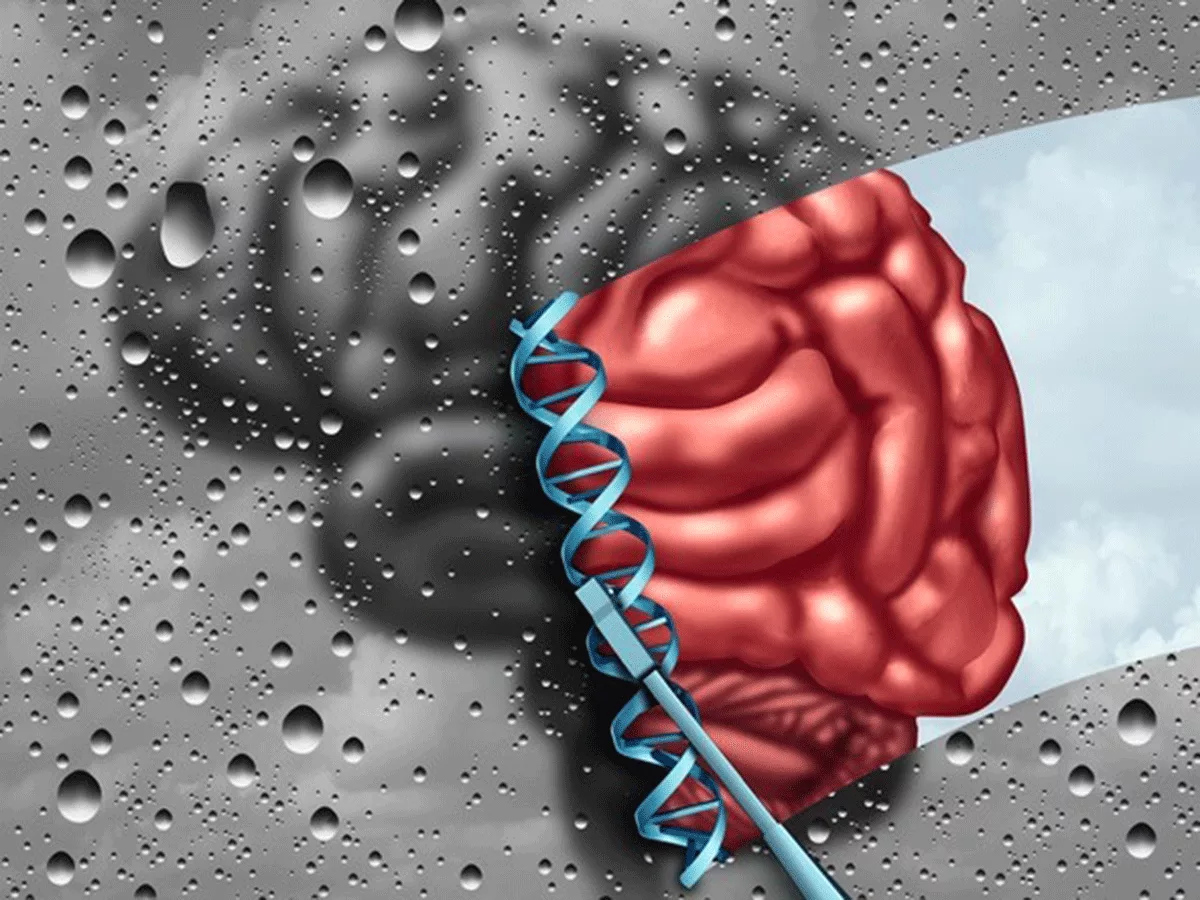A study led by scientists at the University of Science and Technology of China (USTC) in Hefei City is the first to show that astrocytic apolipoprotein E (ApoE) regulates neuronal epigenetic states via reprogramming lipid metabolism, which was shown to control brain function, in particular memory consolidation, in mice.
Moreover, the study showed that human ApoE4, an established risk factor for Alzheimer's disease (AD), was less capable of neuronal metabolic and epigenetic regulation than ApoE3, the authors reported in the January 26, 2021, online edition of Neuron.
"This is the first study to demonstrate that astrocytic ApoE mediates memory consolidation in mice," said Qiang Liu, a professor in the School of Life Sciences at USTC, who co-led the study with his USTC professorial colleague Juan Zhang.
The finding that human ApoE4 is less capable of neuronal metabolic and epigenetic regulation than ApoE3 is highly significant, said Liu "because it reveals why ApoE4 is the major risk factor for AD, as ApoE4 is less capable of regulating epigenetic-mediated memory."
Produced primarily by astrocytes, ApoE is predominantly associated with cholesterol-rich high-density lipoprotein (HDL)-like complexes.
Lipidated ApoE is the principal carrier of cholesterol to neurons via ApoE receptors, with neurons relying heavily on this source of cholesterol, as their de novo cholesterol biosynthetic pathways are substantially suppressed.
"The primary function of the neuron is actually neurotransmission, for which the neuron will save its energy via relying on astrocytic cholesterol," Liu told BioWorld Science.
Astrocytes
Astrocytes are CNS glial cells that not only interact with neighboring neurons metabolically, but also are actively involved in regulating neuronal functions.
Astrocytic ApoE is closely associated with cognitive function in the mouse brain, and human ApoE, which contains three major isoforms, shows an isoform-specific effect on cognitive processes.
However, the detailed mechanisms of ApoE in reprogramming cholesterol metabolism and regulating cognitive function remain largely unknown, but neuronal function is known to require accurate control of gene expression via microRNAs.
MicroRNAs
MicroRNAs are noncoding RNAs, which regulate post-transcriptional gene expression and can be packaged into exosomes, then secreted and delivered to recipient cells.
Lipoproteins could also serve as carriers for circulating microRNAs, but their identification, characterization and potential function in the brain remain elusive.
Histone acetylation, an epigenetic mechanism essential in modulating neural gene expression, promotes the expression genes induced by neuronal activity.
However, whether astrocyte-secreted signals modulate neural gene expression via affecting the epigenetic state of neurons also remains unclear.
In their new Neuron study, the authors used quantitative polymerase chain reaction (qPCR) to search for and identify a class of microRNAs in astrocyte-derived ApoE particles, which were shown to selectively post-transcriptionally suppress catalytic enzymes in the neuronal de novo cholesterol biosynthesis pathway.
Consequently, nuclear acetyl-coenzyme A (acetyl-CoA) was found to be accumulated, while histone acetylation was promoted.
"Acetyl-CoA is the substrate for cholesterol synthesis, so when cholesterol synthesis is suppressed, acetyl-CoA accumulates. Nuclear acetyl-CoA is used for histone acetylation, hence the importance of nuclear acetyl-CoA," said Liu.
The researchers also demonstrated that deprivation of ApoE not only abolished histone acetylation levels, but also reduced the enrichment of specific histone markers, such as H3K27ac, on the promoters of multiple immediate early genes during memory consolidation in mice.
Using an adeno-associated virus (AAV) vector-mediated astrocyte-specific genetic knockdown to achieve ApoE deprivation, "we were able to achieve 30-50% histone acetylation and enrichment of specific histone markers on genes," said Liu.
This was ultimately demonstrated to result in damaged transcriptional activation of these genes in response to neuronal activity.
Importantly, human ApoE4 was shown to reprogram the metabolic state and to promote histone acetylation-mediated memory less efficiently than ApoE3.
Together, these findings define an astrocytic ApoE-mediated neuronal epigenetic mechanisms as a novel means via which astrocytes modulate brain connectivity and function.
This has important implications for the discovery of new AD treatments, said Liu, "as targeting astrocytic ApoE or related microRNAs would provide new treatments for AD and other neurodegenerative diseases, which in future we will be researching in AD mouse models and patient samples."

